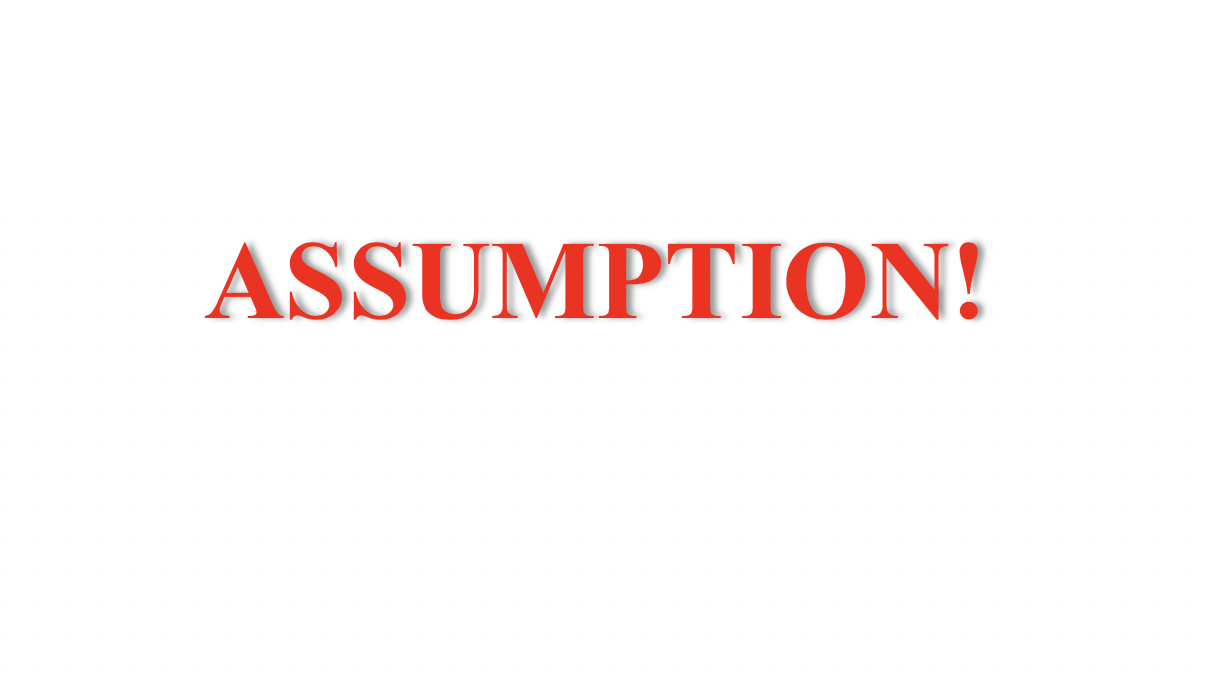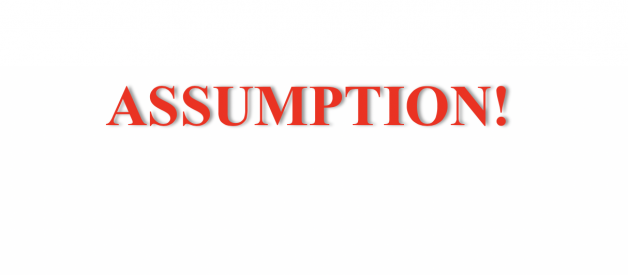
I?m grateful to my new friend, Ben Hunt, for pointing out the Gell-Mann Amnesia Effect. Author Michael Crichton coined the term and named it after his physicist friend, Murray Gell-Mann. First, here?s Crichton?s quote explaining the effect:
?Briefly stated, the Gell-Mann Amnesia effect is as follows. You open the newspaper to an article on some subject you know well. In Murray?s case, physics. In mine, show business. You read the article and see the journalist has absolutely no understanding of either the facts or the issues. Often, the article is so wrong it actually presents the story backward ? reversing cause and effect. I call these the ?wet streets cause rain? stories. Paper?s full of them.
In any case, you read with exasperation or amusement the multiple errors in a story, and then turn the page to national or international affairs, and read as if the rest of the newspaper was somehow more accurate about Palestine than the baloney you just read. You turn the page, and forget what you know.? ? Michael Crichton
So, in short, the Gell-Mann Amnesia effect is when experts forget how badly their own subject is treated in media and believe that subjects they don?t know much about are treated more competently by the same media. I had cause to think of a corollary, and like Michael Crichton who named his effect after his more famous friend, I?ll name this corollary the Hunt Assumption Amnesia Corollary. But also, Ben is a ruthless finder of assumptions in anyone?s logic, so he deserves the name.
The corollary came to me the other day when I was reading an email string on Addiction Medicine. A couple of fathers of the field had written an article in one of those non-peer reviewed clinical newspapers that each specialty has and shared it with the group. They were showered with praise, so I started reading what they wrote. I was struck that the assumptions they made in their article directly contradicted several of the working assumptions of the group, yet the group expressed nearly universal approval with the conclusions of the article.
So the Hunt Assumption Amnesia Corollary is when experts start reading a paper, note that they disagree with some basic assumptions of the work, but keep reading and accept the conclusions, forgetting they had rejected the assumptions. This effect is rife in Addiction Medicine, and, I suspect, much of academia.
When I first learned to read a scientific paper, I was taught to go through the various sections to understand the limitations of the conclusions I?d read at the end. Did they select the subjects correctly? Did they use the right test for the question? Did they have enough subjects to power the study sufficiently? And many other important questions.
But I?ve come to find in the fullness of time that there are really only two questions I need to know when reading a paper. Were the authors aware that their assumptions are assumptions, and are they questioning them?
We?ve operated in this country on the assumption that drugs cause addiction since around the turn of the twentieth century. Since 1905, we?ve been passing federal laws about the limitation of drugs. We upped the ante in the 30?s and again in the 70?s with our, still on-going, War on Drugs. If one just read the public media, then one could be excused for believing that addiction is caused by drugs. Yet, science has moved on.
The email group of experts I?m part of accept the ASAM definition of addiction, which briefly says:
?Addiction is a primary, chronic disease of brain reward, motivation, memory and related circuitry. Dysfunction in these circuits leads to characteristic biological, psychological, social and spiritual manifestations. This is reflected in an individual pathologically pursuing reward and/or relief by substance use and other behaviors.?
Notice that in the ASAM definition, the illness is primary. That is, it doesn?t require a cause. The primary illness is what causes symptoms, and the symptoms are reflected in the reward pursuit. Note also that this pursuit of reward ?other behaviors,? such as overeating, sexual actions, gambling, gaming, etc. In short, addiction is in the brain, not in the reward, and rewards are ubiquitous, not limited to drugs.
Yet, this group of experts, reading a piece using assumptions stated as fact that directly contradict their own world view, forgot by the end of the article that the original assumptions were just that. Is this just limited to science? I doubt it.
I want to pose my own testable hypothesis about how this corollary effect occurs. I think, if I?m right, that we?ll see it in all media.
First, the assumption is stated as fact, but in a muted way so that it slides past the readers assumption filter rather than slamming headlong into it. Then data is piled up to bolster the writer?s thesis by generalizing findings in particular situations to all situations. So, by the end of the piece any disagreement with the assumption is forgotten under the weight of ?the evidence.?
It?s expensive, yet possible to test. We could use the same argument, written three different ways: 1) with both assumption and evidence written to effect the assumption amnesia, 2)with the initial assumption written to assault the reader but with the following evidence written to foster amnesia, and 3) with the assumption written to slide past the filter but with the evidence presented in more specific limited detail so the reader can see it isn?t generalizable. Then it?s presented to groups and their amnesia assumption is measured.
So, I?m right or I?m wrong, and someone can tell. There it is world, the Hunt Assumption Amnesia Corollary to the Gell-Mann Amnesia Effect. Disprove it, please.
*********************************************
Dr Wetsman is a board certified psychiatrist and addiction medicine specialist currently living in New Orleans. He is sitting out a non-compete clause after selling his treatment company and developing plans for a new, improved, treatment model starting in 2019. Dr Wetsman maintains a blog and a youtube channel where he often shares new ideas about addiction treatment and other subjects.


